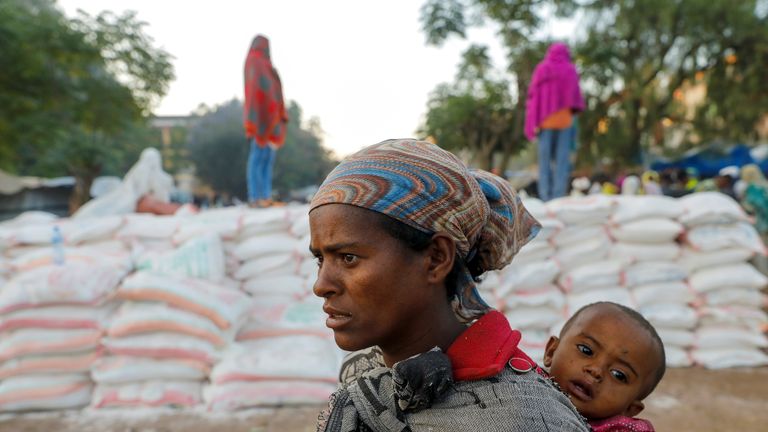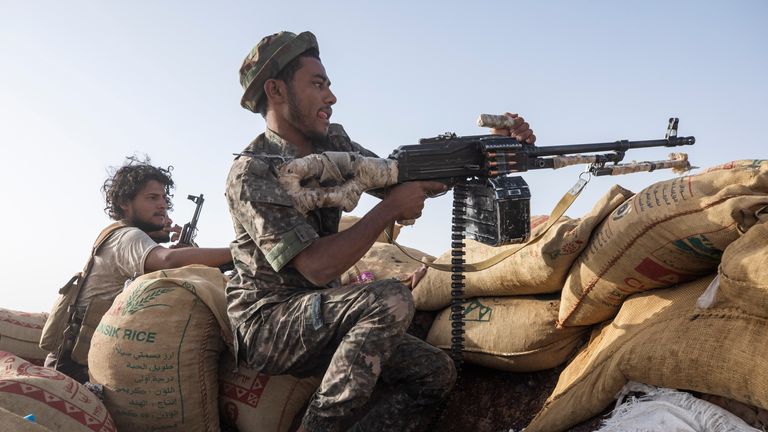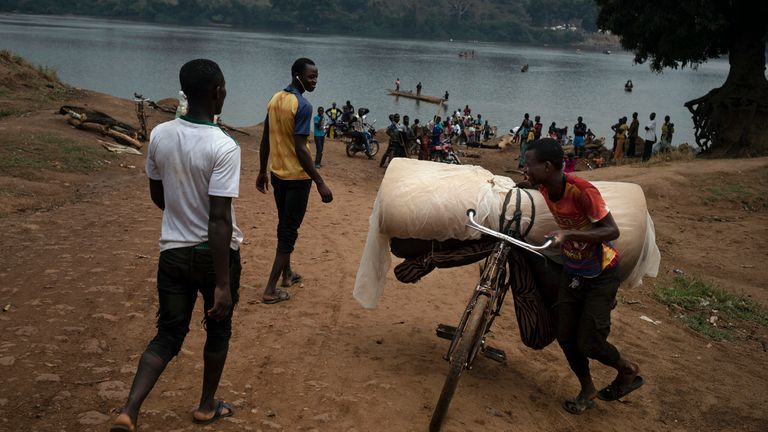Deaths from starvation are outpacing those from coronavirus around the world with 11 lives a minute likely lost to hunger, an anti-poverty charity has warned.
COVID-19 was one of the “three lethal Cs” fuelling the global emergency together with conflict and the climate crisis, said Oxfam.
According to its report, The Hunger Virus Multiplies, a further 20 million people had been pushed to “extreme levels of food insecurity” this year, taking the total to 155 million in 55 countries.
Latest coronavirus updates at home and abroad
Since the coronavirus pandemic began, Oxfam said the number the number of people globally facing famine-type conditions increased sixfold to more than 520,000.
It also pointed out the estimated number of people living in extreme poverty is forecast to reach 745 million by the end of 2021, an increase of 100 million since the pandemic started.
The figures come amid ongoing controversy over the UK government’s decision to cut foreign aid due to the economic impact of COVID.
The Oxfam report said: “What we saw as a global health crisis has quickly spiralled into an inflamed hunger crisis that has laid bare the stark inequality in our world.
“The worst is still yet to come unless governments urgently tackle food insecurity and its root causes head on.
“Today, 11 people are likely dying every minute from acute hunger… This rate outpaces the current pandemic mortality rate, which is at 7 people per minute.”
It added: “Ongoing conflict, combined with the economic disruptions of the pandemic and an escalating climate crisis, has deepened poverty and catastrophic food insecurity in the world’s hunger hotspots and established strongholds in new epicentres of hunger.”
According to the report, the Democratic Republic of Congo leads the world in the estimated number of citizens facing “crisis-level hunger” at 21.8 million – around a quarter of the country’s population.
Other countries featured in the report’s list of top 10 “extreme hunger hotspots” include Afghanistan, Yemen and South Sudan.
The report proposed a raft of measures to tackle the crisis, including the international community providing emergency economic and humanitarian assistance to hunger and conflict hotspots, and global co-operation to “build fairer, more resilient, and sustainable food systems”.
It also called on the world’s leading economies to back a global vaccination drive and take “urgent action to tackle the climate crisis”.
The report stated: “There is no end to hunger unless drastic collective measures are taken to end the underlying injustices fuelling hunger.”



